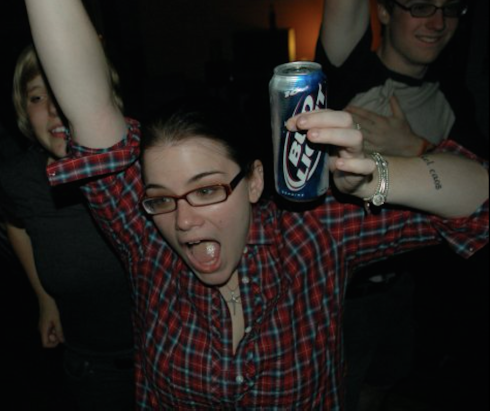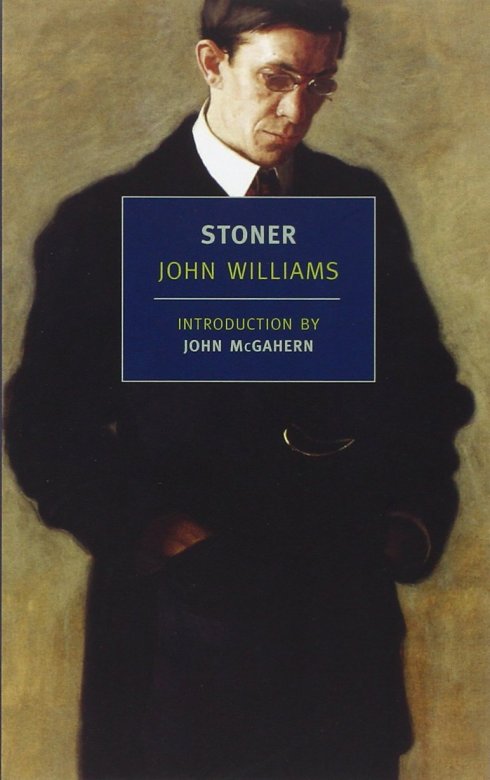
A mere six months into my 30s, I find myself already looking back on college with the same abstract nostalgia one might apply to say…fax machines. Like, wasn’t that so neat at the time? How you could totally put a sheet of paper with stuff on it into a machine and then a machine somewhere else would, moments later, spit out an identical sheet of paper with identical stuff on it? That was cool. Good times were had. Documents were faxed. But now is better: We have email now. Cell phones. AirDrop. Dropbox. The cloud. And if all else fails, the NSA.
I loved college; I made some of my best friends there. College was the last time one could wear pajama pants in public, or don costumes for spontaneously invented themed drinking nights, or go for second helpings of frozen yogurt at no additional charge. But I also enjoy being an adult, and I know—in whatever corner of my brain isn’t penetrated by models and actresses and the implications of every movie and television show ever—that being young is for the birds. Being young is like fax machines: Wasn’t it neat when you could say “I’m going to hit up three different parties tonight” and then you would actually do it? That was cool. Good times were had. But now is better: Now it’s happy hour and then a good night’s sleep.

TITLE: The Clasp
AUTHOR: Sloane Crosley
PAGES: 368 (in paperback)
ALSO WROTE: I Was Told There’d Be Cake, How Did You Get This Number
SORTA LIKE: American Pie meets Mr. Penumbra’s 24-Hour Bookstore
FIRST LINE: “At first they watched the rain from inside the tent and then they watched it come inside the tent.”
I’ve been partial to Sloane Crosley ever since she nailed the ethos of the suburban millennial in her first book of essays, I Was Told There’d Be Cake. Crosley has a way of being cutting and cute at the same time, and neither with such abandon that it becomes annoying. “Was there a worse compliment than the one with no adjective?” she writes in The Clasp, her first novel. “You have a face. It’s a sweater. He does a job.”
Crosley, like David Sedaris (high praise, I know) was born for the humorous essay genre. She is adept at capturing the mundane, but also at identifying and polishing the right anecdotes, so that her essays feel like stories shared among friends, legends from the canons of interpersonal history. (I think here, and often, of an essay in which Crosley tries to identify the perpetrator of a small human turd left on her bathmat during a dinner party.)
But Crosley is also at home in the novel, and The Clasp—about college friends who reunite at a wedding that propels them on an international adventure—is a light and lovely read, perfect for a rainy afternoon or a day at the beach. Crosley’s signature voice is there (“the thought of not sharing information for the benefit of the male ego made her want to burn her bra. Though the bra she was wearing was not priced for protest: $50 on sale”) but almost as if to compensate for her background in nonfiction, Crosley has also crafted a thoughtful plot, a little too tidy in its execution but otherwise a pleasant surprise. [🏆🏆🏆]

TITLE: Stoner
AUTHOR: John Williams
PAGES: 278 (in paperback)
ALSO WROTE: Augustus, Butcher’s Crossing
SORTA LIKE: A Separate Peace meets Benjamin Button
FIRST LINE: “William Stoner entered the University of Missouri as a freshman in the year 1910, at the age of nineteen.”
A coming-of-age/aging novel that recently celebrated its 50th anniversary, Stoner is the story of William Stoner, an uneducated farm boy who becomes educated, discovers a love of learning, which becomes a love of teaching, which leads him to decades of satisfying and then unsatisfying and then newly satisfying experiences professing to students of everything from profound to nonexistent intelligence. Also he has a wife and she’s terrible.
Stoner—the book, not the man—is considered something of a forgotten classic, and it’s not hard to see in Williams’ prose the same cleanliness and sophistication that is the hallmark of authors like Fitzgerald and Salinger. Stoner’s wife Edith moves into their apartment “as if it were an enemy to be conquered;” an old woman’s face bears “the deep marks of what must have been a habitual dissatisfaction.” Williams paints pictures slyly, with just enough detail but little fanfare, so that you find you are, if not enthralled by the writing, pleasantly absorbed.
But Stoner’s life is a bleak one, and the paucity of actual action in the novel—intentional, to be sure—made it unmemorable for me. Stoner is not good or bad enough to care too much about, and I found myself enjoying, but not caring too much about, his story either. [🏆🏆]

TITLE: A Little Life
AUTHOR: Hanya Yanagihara
PAGES: 736 (in hardcover)
ALSO WROTE: The People in the Trees
SORTA LIKE: The Interestings meets Sleepers
FIRST LINE: “The eleventh apartment had only one closet, but it did have a sliding glass door that opened onto a small balcony, from which he could see a man sitting across the way, outdoors in only a T-shirt and shorts even though it was October, smoking.”
Admittedly: Books read on vacation are always better, because one has the time and inclination and attention span to give them their due. Admittedly: It would be hard for me not to feel some inherent kinship with a novel about a group of multi-racial, multi-sexual (?) college friends who live in New York City while pursuing different careers with varying degrees of success. Admittedly: I’m a sucker for a longread. But all that aside, I still don’t think it’s an exaggeration to call Hanya Yanagihara’s A Little Life the best existing fictional exploration of coming of age in New York in the sexual, racial and social fluidity of the two thousand teens.
Not that the book is necessarily set in the present day. Mentions of time and place are conspicuously scrubbed from A Little Life, and even as the novel jumps forward and backward in time—following the decades-long friendship of Willem, Jude, JB and Malcolm—no particular years or chronological landmarks (9/11, presidential elections, the NYC blackout) are referenced. While it seems at first an odd choice, the lack of real-world context only ends up brightening the spotlight on the characters, whose personal histories are the true focal point of the novel and whose relationships are the nucleus around which it revolves.
As a female author, Yanagihara makes ballsy choices even in the basics of A Little Life. All of the book’s main characters are men; two are black, and at least one is gay. Further, Jude—perhaps one of the most tragic personas in modern fiction—is an abuse survivor. As if on a bet, Yanagihara has created in her sophomore novel something emotionally audacious, with the added risk of embodying perspectives with which she cannot relate personally. And yet the voices and personalities she has created never feel insincere, or thinned out in the interest of treading carefully in unfamiliar territory.
As with The People in the Trees, the language in A Little Life is lovely, and while some have criticized the book’s length and subject matter—”tragedy porn” is a common phrase on the 1-star Amazon reviews—I didn’t find either unnecessary. Rather, the heft exists so that the characters can breathe, so that we can come to understand this foursome of multi-faceted, heavily flawed and deeply lovable people. Whether you identify most with Willem or Jude or JB or Malcolm or—most likely—with different characters at different times, there are myriad personalities and emotional vulnerabilities with which to connect here.
Because more than anything, Yanagihara captures connection—the ties we create between ourselves, and the degree to which they stand up in the face of time, distance and even tragedy. “The trick of friendship, I think, is to find people who are better than you are,” Jude says at one point in the novel. “[Not] smarter, not cooler, but kinder, and more generous, and more forgiving—and then to appreciate them for what they can teach you about yourself, no matter how bad—or good—it might be, and to trust them, which is the hardest thing of all. But the best, as well.” [🏆🏆🏆🏆]

Reblogged this on GUM: Growing Up Millennial.
Nice post. I’ve added A Little Life to my reading list.
So many to add to the TBR stack…
Really interesting and entertaining article I will certainly try to read these books if I get the chance.
I love the way you write! “Good times were had.”
Lol we still use a fax where I work!
Sloane Crosley always makes me smile, but for some reason I’m still hesitant to check out her latest. Perhaps it’s the very light, frivolous plot summary, but it makes me feel that it might change my enjoyment of her forever. And, ya know, I kinda like the current stage of our relationship. Maybe I should get over it and read the damn thing?
I know what you mean. It’s definitely not as edgy as her essays, but still enjoyable.